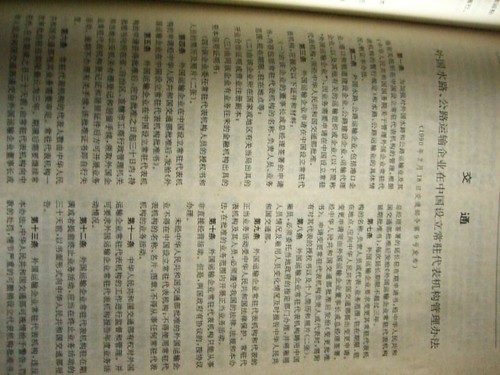
As we prepare to start another semester, I have been thinking about the differences and similarities between law students and legal studies across cultures. Chinese universities are ranked, although not by US News, and I was fortunate to be hosted by one of the better ones, the University of International Business and Economics. The appeal for my research was UIBE's top flight antitrust center, but more about that another day. The school is known for expertise in law, economics and languages - all viewed as "girly" subjects compared to the hard sciences, so the students were about 60% female, and their English was superb.
Many, but not all, of the students I met were only children, the first in their families to go to university, and their parents had been saving for years to give their precious children a chance at a better life. These modern kids are sometimes referred to as "little emperors," but they are under great pressure to succeed, and later in life will be responsible for supporting their parents. They are admitted to university based solely on their scores on a 2-day, national examination, a time of high anxiety for students and their parents alike.
Chinese law students may take 10 courses per semester plus extracurricular activities, and the time pressure is intense. But, UIBE sent a law school team to Vienna for the VIS moot court competition, in which PSU participates. It was the first time abroad for team members. Many are from distant provinces, so they were far from home and got to visit their families only at the major holidays. By and large, they lived in student dorms - 6 students per room and lights out at 11:00 - not exactly like law school in the US. Law books are expensive, and I will always recall the gasps when I brought a suitcase full of books into my antitrust class and handed them out. Some of the students couldn't believe the books were theirs to keep, and I was actually asked to autograph some.
But the real contrast came in the classroom. Chinese education is primarily by lecture and students are expected to reproduce the knowledge given to them by the professor standing at the front of the room. This learning style follows a long tradition in art as well. By contrast, I called for American-style law school dialogue, analysis and critique. Some students were resistant, but others took to analytic thinking - and chance to talk in class! - eagerly. Perhaps the most difficult taboo to overcome was the reluctance to criticize judicial authority reflected in an opinion or question a court's reasoning. I explained that respectful critique can help a court to rethink legal issues and improve the substantive law, and we had a good example in antitrust just last term in the Leegin case.
Law students have many things in common, too. The eagerness to learn, to prepare for a career, and make a contribution was evident in Beijing and I'm looking forward to seeing it here as PSU starts classes next week.
2 comments:
Fascinating observations, Professor Farmer. I find it intriguing that the standard style of Chinese education is to reproduce information given to them instead of critically analyzing it. That’s the same direction American education has been going in for years, which I regard as its downfall. To trade in critical analysis and creative thought for a system that champions a “read, remember, regurgitate” approach…but I’m trailing away from the point I wanted to touch on.
You mentioned something that perplexes me and I wonder if you have any thoughts on why this might be. There’s this popular prejudice that the humanities and social sciences are "girly" subjects while the natural sciences are seen as "hard sciences,” which are implied to be harder and accordingly more masculine. I was a psychology major with a minor in English and I’ve moved on to the study of law. So I’m familiar with the subtleties and nuances in these areas of academic discourse. So why is it do you think that the intricate areas of study are given a feminine connotation while the blunt and basic natural sciences are more masculine?
Your comment touches on questions of innate ability, nature vs. nurture, and the relative social worth of various skills and vocations. Let's start with the first: there was some evidence that boys did better on tests involving math and science, while girls tended to outperform their brothers in the verbal skills area. That gap seems to be closing, which suggests that the distinctions were mostly learned (there is an article on this in USA Today today http://blogs.usatoday.com/oped/2008/08/gender-segregat.html). Certainly, law is a lucrative career, so the economically-minded would expect equal numbers of qualified men and women students heading to law school. And, indeed, we do see rough parity in US law school classes.
One other thing I observed in China was that both parents tend to work, even when their children are very young, so the percentage of women lawyers there may tend to stay high until there are more men in the classroom. The reason for 2-parent workers is, of course, the collision of the 1-child policy, early retirement age (60 is gneerally mandatory) and lack of pensions. This leaves both parents working to support their parents and child. Early every morning, my neighbors' doorbell would ring and the parents would hand over their adorable 8-month old to grandmother and grandfather. Fortunately, they all lived in the same apartment complex so they had reliable daycare and the whole family could have dinner together before going home. Indeed, the policy permits parents who themselves were only children to have more than one child because of this crunch.
Post a Comment